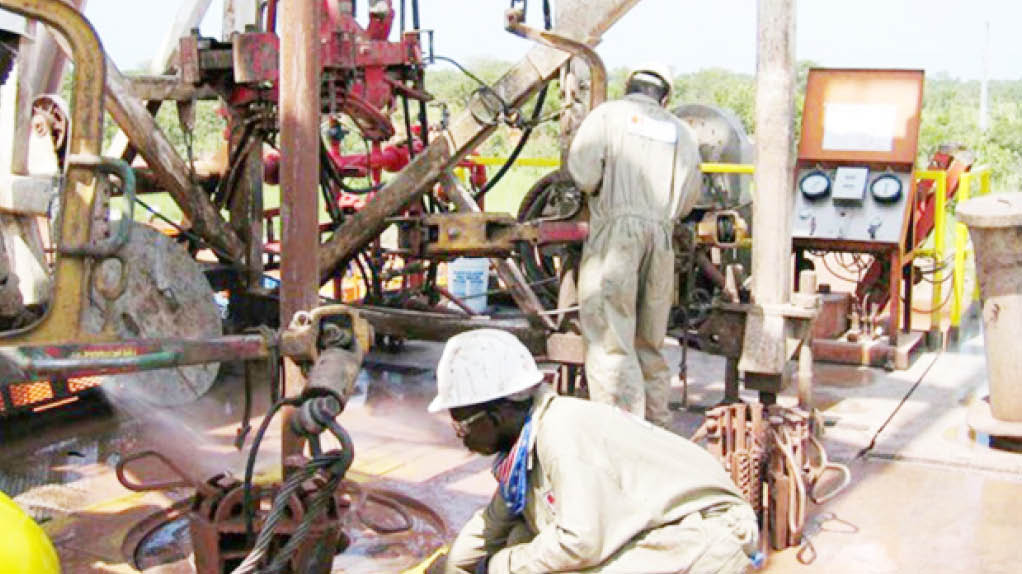The deafening silence around Kolmani oil fields
Murmurs from many towns and villages around the Kolmani oil fields situated between Bauchi and Gombe state are those of dejection, disappointment and a feeling of abandonment. Movements of heavy and light vehicles conveying equipment and engineers have seized for over a year, according to community leaders and locals, and the pathways overtaken by weeds, […]

North’s new oil fields
Murmurs from many towns and villages around the Kolmani oil fields situated between Bauchi and Gombe state are those of dejection, disappointment and a feeling of abandonment.
Movements of heavy and light vehicles conveying equipment and engineers have seized for over a year, according to community leaders and locals, and the pathways overtaken by weeds, evidently showing signs of seizure of prospecting and exploration activities.
Sadly, those in charge of the project have moved on with their lives, after the initial pomp and pageantry that heralded the purported commencement of exploration activities in the area.
Even private individuals, especially property developers, who earlier showed interest in acquiring lands from the people around the oil field for various purposes like hotels, residential houses and malls, have recoiled back to their comfort zones when they realised that the initial interest shown on the project had faded.
People around Pindiga in Gombe State, and Alkaleri in Bauchi State, said that the system has not been fair to them.
We recall that as the 2023 general elections drew nearer, and the government of the day was all out to woo voters, activities around the Kolmani oil fields received serious traction, and something historic happened in November 2022.
It was the visit of then President Muhammadu Buhari to the area, during which he flagged off the oil exploration of the Kolmani Integrated Development Project.
Those behind the project described it as a significant milestone for Nigeria’s energy industry, with the potential to produce 50,000 barrels per day.
They also said the project had attracted over $3 billion in foreign direct investment.
In his speech, Buhari commended the Nigerian National Petroleum Company Limited (NNPCL) and its partners for the successful discovery of oil and gas in the Kolmani River Field, highlighting the project’s significance in achieving energy security, financial security, and overall socio-economic development of the country.
Buhari described the day as important in the economic history of the nation, heralding the production of oil and gas in the Upper Benue Trough.
According to the provisions of the Production Sharing Contract (PSC), while the NNPC is the concessionaire of the blocks, the NNPC Exploration and Production Limited (NEPL) and New Nigeria Development Company Limited (NNDC) are the contractor parties.
Besides, AOML Consortium signed a strategic partnership with the contractors to provide funding and technical capabilities for the integrated oil and gas development project and to be compensated from the contractor’s oil profit after commencement of operations.
Equally, there was an in-situ integrated development plan, which guarantees evacuation and monetisation route for the hydrocarbon in the location, thereby eliminating the high cost and burden of building crude and product pipelines.
Wittingly or unwittingly, locals around the oil field were taken away by the euphoria of the sight of high and mighty that graced the occasion, and went to bed with their two eyes closed, believing that the next morning, they will see oil flowing, and their lives will change from that of peasant farmers to people of affluence living around oil wells.
You have to forgive them for their phantom optimism because they saw a retinue of prominent people that accompanied then President Buhari, such as governors and ministers, including the then presidential candidate of the All Progressives Congress (APC), Bola Ahmed Tinubu, and captains of industry, as well as some members of the diplomatic corp.
The celebration was not only in Bauchi and Gombe; it was a huge sigh of relief across the North Eastern part of country and by extension the Northern region.
The people strongly believed that a jinx had been broken, that the region, which is being described in certain quarters as “parasitic”, will also start contributing significant funds to the table of the Federal Accounts Allocation Committee (FAAC), in addition to what comes from the Niger Delta region.
But it appears that this optimism, like many others before it, will also remain as pipedream.
We recall with nostalgia, the many attempts to explore oil around Borno, including the one in May, 2023, when the Wadi-B oil and gas exploration campaign was flagged off in Jere Local Government Area of the state, with the objective of adding three billion barrels to Nigeria’s reserves by 2030.
There was also the Wadi-B well, which is located in Tuba community of the same Jere LGA, 50 kilometres away from Maiduguri, the state capital.
Those events marked the formal resumption of physical efforts for oil and gas in the Chad Basin area, considering that prospecting activities especially in northern part of Borno were halted following serious onslaught by the Boko Haram terrorists.
In retrospect, the search for oil in the region began in the 70s, but due to political and other mundane factors, none of the efforts has seen the light of the day.
The Kolmani exploration should be a national priority and must not be abandoned. Government is a continuum and President Bola Tinubu, who is the Minister of Petroleum should re-mobilise the contractors and investors to site.
The promise made to the people and the communities must be kept. It would strengthen the trust in government.
Nigerians need to be constantly updated on its status, the level of commitment and the next steps. It should be taken as a national project. The president and other stakeholders must show the political will.
